The new government is looking to recruit 100,000 people into the rail industry. Andy Comfort reports on how one train maintenance company has taken matters into its own hands with a groundbreaking scheme.
In this article:
The new government is looking to recruit 100,000 people into the rail industry. Andy Comfort reports on how one train maintenance company has taken matters into its own hands with a groundbreaking scheme.
In this article:
- Arriva TrainCare's internal training scheme addresses rail industry recruitment challenges with flexible, in-house training options.
- The scheme allows all employees to gain engineering qualifications, enabling career progression and skill development.
- With retention rates of 95%, Arriva TrainCare plans to expand its programme to fill critical technical roles.
The recovery of the rail industry after the COVID pandemic has been well-documented. But one area that has caused concern behind the scenes is recruitment.
Hidden from the view of passengers behind depot walls is the world of train maintenance and engineering, and this is not immune from the recruitment crisis facing the entire UK rail industry.
A recent national newspaper report suggests that the new Labour government is looking to recruit 100,000 people into the rail industry. And the level of the recruitment problem in technical roles has forced one maintenance company to take drastic action.
Arriva TrainCare (ATC) maintains, fuels and overhauls trains at six sites across the UK - Crewe, Bristol, Eastleigh, Cambridge, Gateshead and Scarborough.
The company has carried out projects for various rolling stock companies and train operators, including refurbishing Class 158 trains for Porterbrook/Great Western Railway and Northern Trains.
ATC has an apprenticeship programme, but that has some limitations. For example, much of the work carried out at the depots is done during night shifts, which 17-year-old apprentices would not be permitted to do.
It was felt that the three-year standard apprenticeship scheme, which operates across half of the company’s sites, wasn’t suitable for everyone. Arriva TrainCare sometimes found it a challenge to release apprentices for college, and so started to look for something additional, which would be more flexible and offer the company a pipeline of qualified engineers and technicians.
This led to the idea of an internal scheme, open to anyone in the company, to train as engineers or technicians and to receive qualifications recognised across the industry. This scheme is open to all staff at all six depots and is managed by ATC.
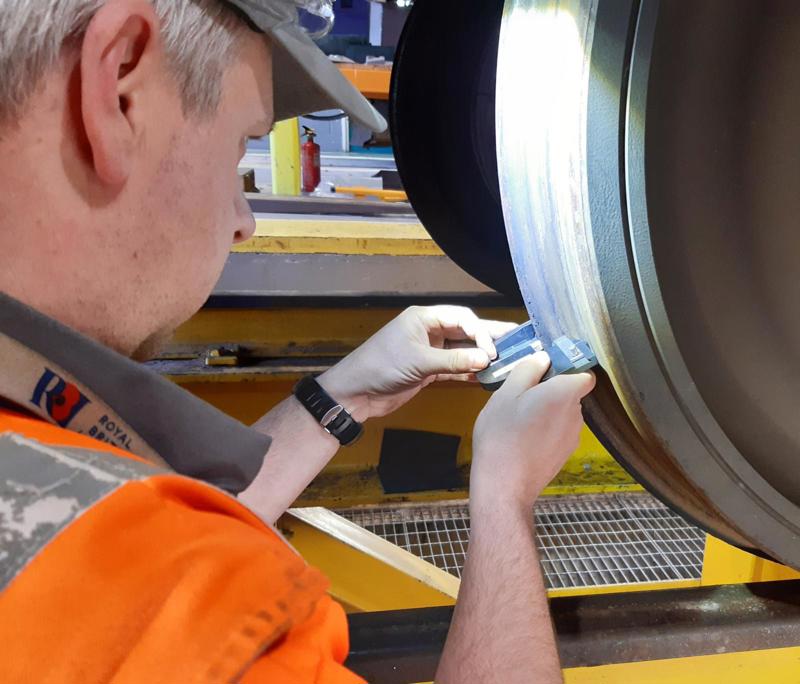
Mark Parker, the production director at Arriva TrainCare, was one of the people behind the scheme’s introduction.
“We saw the skills shortage as an opportunity to grow and develop our own team, our own talent. The ones who showed the enthusiasm to progress, we wanted to ensure we could invest in those people,” he tells RAIL.
It was something Parker was passionate about. And he was backed by Arriva TrainCare, which was keen that all staff at every level should be given opportunities to develop. The hope was that it would also create a pipeline of people able to fill critical technical and engineering roles.
Another issue with the apprenticeship programme is the length of the scheme. The Level 3 Railway Technician is a three-year course, which the company felt wasn’t suitable for everybody.
ATC Head of Depots Nick Pender tells RAIL the company had limited capacity to allow people out to go to college, albeit on day release. And that’s a challenge for most businesses, especially over a three-year duration.
“What we were looking for was a more streamlined programme that we could deliver over a 12-month period with a flexible delivery option,” he says.
“We started looking around at what was available within the education market and that proved quite a challenge - most colleges offering a training qualification in rail wanted to do a block release or a day release. For a business that has a national footprint and 24-hour provision, it was really difficult to get those people to a single point to actually train them in the appropriate way.”
Arriva TrainCare approached several colleges and training providers, and it was suggested that the company could train its own people internally using workplace mentors and competent staff.
The NVQ qualification programme requires an accredited assessor, so it was agreed that ATC would undertake the teaching side using its work-based mentors and internal training team. Trainees would then be externally assessed and verified, so they could claim the qualification.
The company has found the scheme, now in its third year, to be more agile and flexible than some of the structured education programmes, and allows it to offer the training across the country to staff who work night shifts and would therefore struggle to get to colleges during the day.
The initial qualification for the first trainees was a Level 3 Certificate in Rail Engineering, Traction and Rolling Stock, which is the minimum entry level for the company’s technicians. This has been expanded this year to offer a Level 2 Certificate in Railway Engineering Knowledge. ATC is also looking at a Level 4 Certificate for more technical staff, known as the Advanced Technician Qualification.
One concern was that ATC would train its staff and they would then find jobs as engineers with other employers.
But of the 23 staff who have completed the programme over its first two years, 22 have been retained by the company. All are now working as qualified engineers or technicians for Arriva TrainCare. A further 12 staff are currently going through the training alongside their existing jobs within the company’s six depot sites.
Just a year ago, those qualified engineers and technicians may well have been fuel point assistants, putting fuel and water into trains in the depots. They would have been doing basic tasks and wouldn’t have been allowed to carry out work such as safety validation of rolling stock, which they are now.
Parker is keen to point out that ATC is an inclusive business: “Every opportunity now is available to every member of staff.
“Train presentation operatives are some of the hardest-working staff, but they were in a position where they had nowhere to go.
“Now, they have a development programme of doing the cleaning and going on a Level 2 course.”
That Level 2 course would allow staff to fuel the trains and, if they then choose to carry on and take the Level 3 Certificate, get to a qualified and skilled technical level within just a few years.
Pender cites one example of someone who joined as a cleaner, progressed through the fuel point grades (taking the Level 3 qualification), and who has just been appointed as a deputy team leader.
“Within five years, he’s had a huge progression in terms of his own capabilities and as an individual, having gone through these processes.”
Peter Wright is a service assistant based in Arriva TrainCare’s Tyne Yard in Gateshead. When RAIL spoke to him, he was getting ready for a night shift working on CrossCountry’s Class 220/221 Voyager units, as well as Grand Central Class 180s, operating on the Sunderland to London route.
Early last year, Wright became one of the second cohort of trainees on the ATC scheme, encouraged in part by a colleague at Tyne Yard who was close to completing the first year of the programme.
“I’ve always had a fascination with the mechanical side of the railways,” he tells RAIL.
“I do a bit of work on my car and friends’ and family’s cars, so I’ve always had an interest in mechanics. Then I took a look at this course coming up and thought that sounds good for me.”
With support from his team leader at Tyne Yard, Wright was successful in gaining a place on that second programme. He joined other trainees in the cohort on video meetings where they were given assignments and advice on how to complete them.
Early learning included rules and regulations, and safety and security around the depots, before progressing onto the more technical side.
Tying in with learning about the electrical and hydraulic systems of the trains was a three-day trip to the Arriva TrainCare depot at Crewe.
The trainees were then able to get hands-on practical experience with trains, something that Wright says isn’t always possible when he’s doing his normal job.
“Through the day, we don’t have any trains on the depot that we can do jobs on. And at night, it gets so busy that we don’t have the time to practise things. You’ve just got to get through and do the jobs as quickly as possible.
“Having that practical side of it down at Crewe, where they have trains 24 hours a day, you can have a go at the various jobs that you will encounter later on.”
The first trains that Wright and his colleagues were able to practise on at the Crewe depot were Transport for Wales Mk 4 carriages (which would have sped past Tyne Yard in their LNER days) and Chiltern Railways Class 168 units.
While Tyne Yard hosts Class 180s, ‘220s’ and ‘221s’, skills learned on the course are easily transferable onto other rolling stock. For example, staff found that brake pad changes on Class 180s are similar to what they learned underneath a Mk 4 carriage in Crewe.
For Wright, the course has been of great benefit and has boosted his confidence.
“It really widens your knowledge of the trains. When you first start, you’re just doing fuel and water. As you progress, you can start helping out with some of the more technical jobs, like brake pad changes. You’ve got that confidence to help out that you didn’t have when you first started.”
Trainees leaving the course can then apply for more technical roles.
Wright, for example, is waiting for a fitter’s role and hopes to get in some more practice when time allows on his busy night shifts at Tyne Yard.
And he sees his future with Arriva TrainCare, which will be music to the management’s ears, who pride themselves on their retention figures, having only lost one member of staff to another employer during the first two years of this internal scheme.
The news of an impending staffing crisis in the rail industry is not new. In November 2020, City & Guilds and NSAR (National Skills Academy for Rail) produced a joint report that laid bare the challenges facing the industry.
Its main findings showed that up to 120,000 additional people would be required over the following five to ten years, with demand for skills predicted to peak around the year 2025.
This is compounded by an ageing workforce - the 2020 report found that over 28% of workers in the rail industry at that time were over the age of 50.
Across the rail industry, employers are looking at how to plug these gaps to avoid some of the more dire predictions in a recent newspaper article, which talks of leaving the sector without sufficient staff to run services.
ARM, a recruitment consultant in the engineering, defence and rail sectors, found in a report issued last summer that “the rail industry faced a shortage of skilled candidates and a host of unmet sector demands. Despite many career benefits in rail and infrastructure, namely job security and competitive salaries, the shortage of candidates is making it increasingly difficult to fill vacancies and for employers to achieve goals within their planned timeframes.”
The hope at Arriva TrainCare is that its internal scheme can address some of the recruitment issues within the company. It says vacancies have been reduced from 13% after the COVID pandemic to around 3% now.
And as the third cohort of trainees are now going through the scheme, there are plans to expand. The Level 2 and 4 programmes are now bedding down, with Level 2 being a two-year course due to its more technical nature.
Arriva TrainCare currently works with a training provider to allow for formal accreditation, but the company is looking at becoming a training provider in its own right, with work under way to see if that can be done as a commercial entity. ATC feels that would give it much more flexibility, and it would be able to offer a greater range of qualifications.
As the new government looks to head off a recruitment crisis in the rail industry, at least work is already under way to achieve that, and the growing internal scheme at Arriva TrainCare’s six depots is certainly one useful aspect.
As passengers glide past Tyne Yard, a few miles to the south of Newcastle on the East Coast Main Line, they may well glance over at the sidings and depot buildings unaware that people such as Peter Wright - and many like him - are busy learning new skills to keep their train moving now and in the years ahead.
Login to continue reading
Or register with RAIL to keep up-to-date with the latest news, insight and opinion.



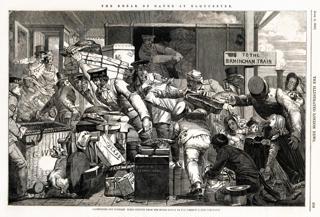
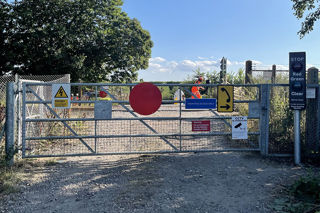
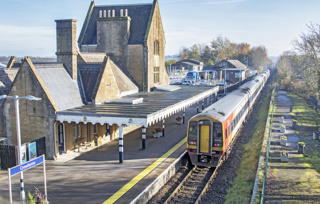
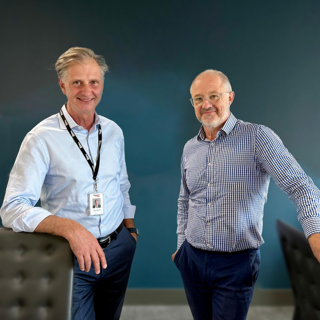











Login to comment
Comments
No comments have been made yet.